disaster preparedness
June 6, 2018
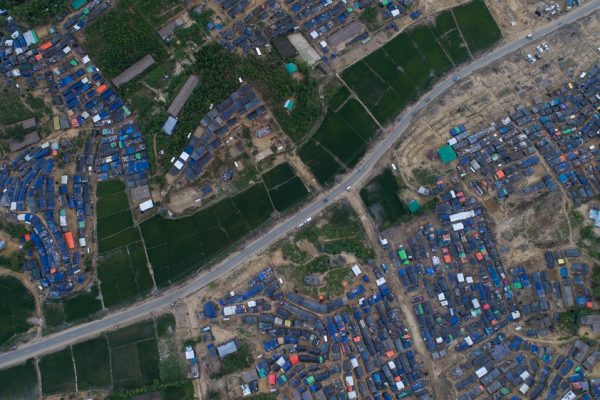
Published by Zaian Chowdhury at Jun 06 2018
Categories
Monsoon has hit the biggest makeshift city in the world.
January 16, 2018
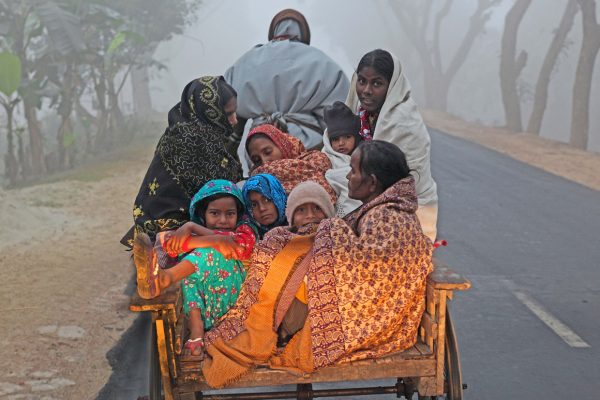
Published by Shashanka Saadi at Jan 16 2018
There was a freak snow storm in the Sahara last week, the surreal images creating a flurry on the internet. On the other side, Sydney is experiencing the hottest summer on record. At home, a severe cold wave is sweeping over northern Bangladesh.
August 17, 2017

Published by Zaian Chowdhury at Aug 17 2017
From the congested, waterlogged streets of Dhaka to flooded farmlands across the country, Bangladesh has enough problems right here. What is the point in looking to the sky when all it brings is rain? Why on earth are we trying to get to space?
August 16, 2016
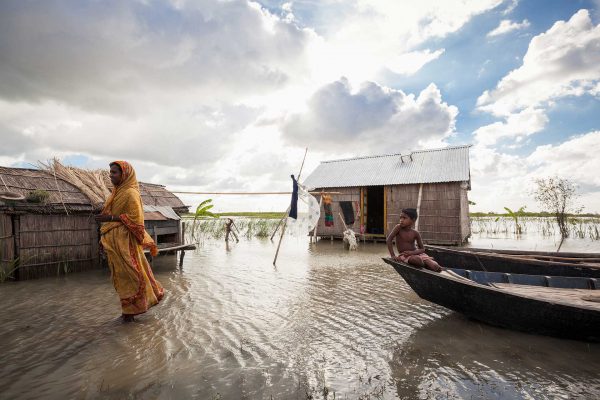
Published by Dr Muhammad Musa at Aug 16 2016
Flooding is not a new phenomenon, and yet it continues to be treated with surprise. Almost one fifth of our country goes underwater every year. The geography and topography of Bangladesh means that we will always be prone to flooding, and the situation will only worsen with climate change.
April 4, 2016
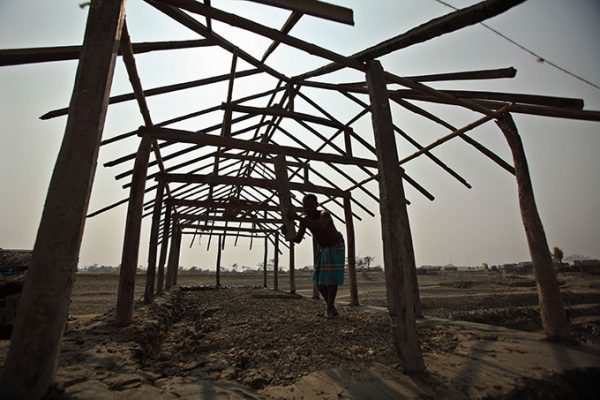
Published by Anjali Sarker at Apr 04 2016
Many perceive South Asia as home to poverty, population explosion and disasters.However, this is only one side of the coin. The other side shows indomitable spirit of resilience that can be seen in grassroots communities across South Asia.
March 24, 2016
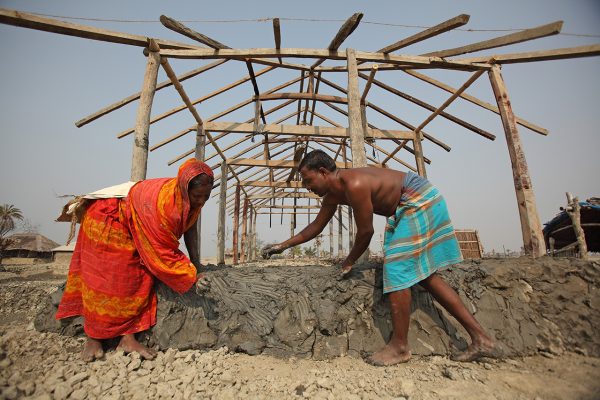
Published by Riffat Ashrafee at Mar 24 2016
What are some of the most effective innovations taking place in South Asia, the region most vulnerable to climate change? What do we know about strengthening livelihoods, financial and social protections to increase resilience for the poorest? This post is the fourth in a series of blogs that will share BRAC’s lessons on building and scaling resilience to climate change.
February 19, 2016
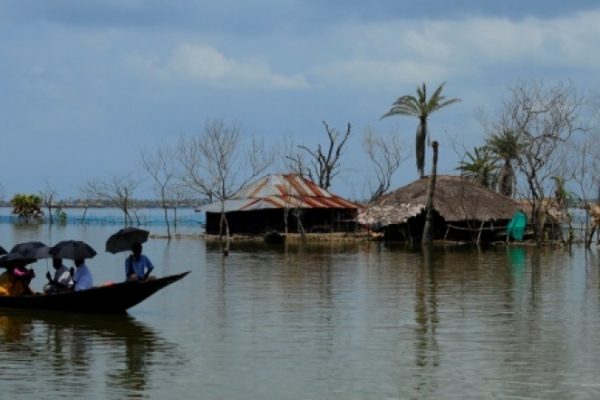
Published by Anika Noor at Feb 19 2016
Categories
The yearly Frugal Innovation Forum at BRAC brings together leading practitioners from the NGO, corporate and entrepreneurial sectors along with academics and policy makers. It has proven a great platform for debate and the sharing of best practice.
October 12, 2015

Published by Tamoha Binte Siddiqui at Oct 12 2015
Due to its geographical location, Bangladesh faces various types of slow and rapid onset of natural disasters. In the coming years, the country will have to bear the increasing brunt of climate change. While relief work is swiftly undertaken by many organisations, there is work to be done on the long-term social and psychological rehabilitation of the people, particularly children living in the affected regions.
April 9, 2015
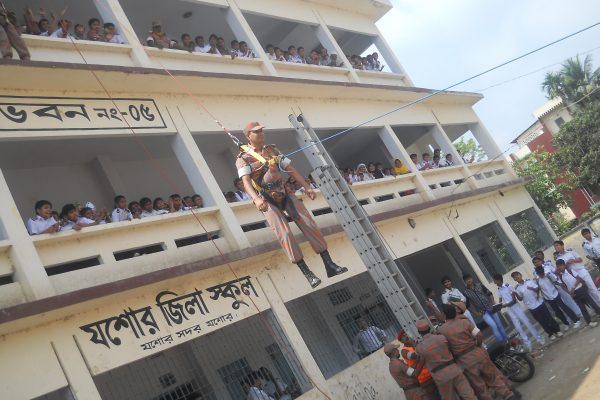
Published by Bithun Tasnuva Mazid at Apr 09 2015
During the summer and monsoon seasons, Bangladesh is prone to nor’westers, floods, tidal surges, cyclones, and tornados. These can be extremely destructive and therefore preparedness is crucial for risk reduction. Understanding this, BRAC has been addressing disaster preparedness in several ways within its programmes. Here’s how.
October 14, 2014
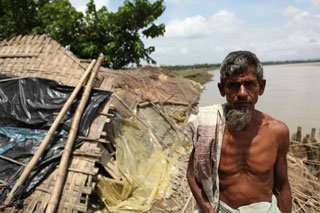
Published by Bithun Tasnuva Mazid at Oct 14 2014
Shukla Pal is one of many shasthya kormis (health workers) of BRAC who received organisational training to serve her community against the risks of natural disaster. A head of the household, a mother and a grandmother, almost 60 years of age, she knows the importance of standard first aid practices required to attend casualties amongst her fellow villagers.
May 16, 2013
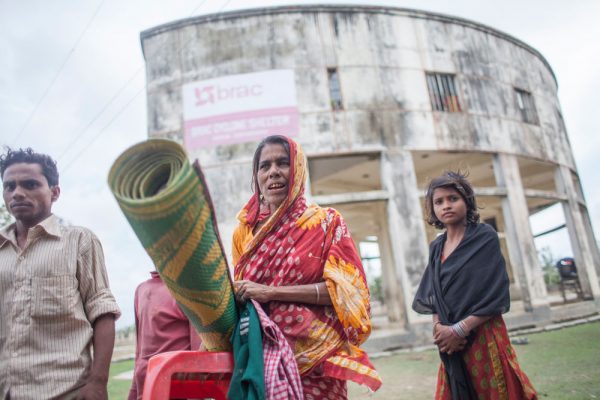
Published by Soraya Auer at May 16 2013
Cyclone Mahasen hit Bangladesh coastal areas on May 16. A combined effort by different BRAC programmes, including Disaster, Environment & Climate Change (DECC), mobilised precautions and has begun relief and rebuilding efforts.
April 22, 2013

Published by Lusana Anika Masrur at Apr 22 2013
An organisation that has won marathons in the field of social development, BRAC has only recently begun dipping its toes in the ocean of environmental issues. Especially for a country like Bangladesh, it is impossible to isolate the ever-complicated ties that bond the contrasting elements of its human-centric and bio-centric problems. On this Earth Day, there is no other topic that seems more worthy of being highlighted, other than this one.

